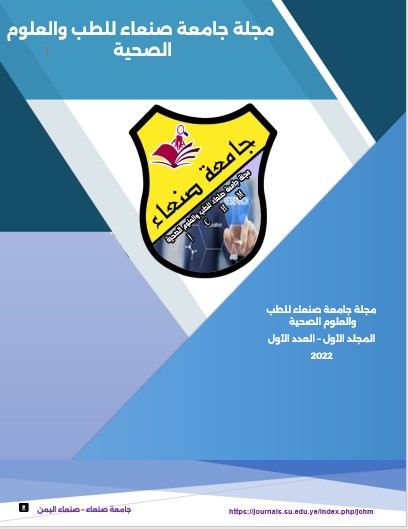Knowledge, Attitude and Practices For Nutrition And WASH Among Care Givers Of Children Under 5 Years Old In Hajjah And Hodeidah Governorates, Yemen
محتوى المقالة الرئيسي
الملخص
Background: Appropriate feeding is important in improving nutritional status & child survival. UNICF reported that malnutrition due to food insecurity in Yemen is alarming (> 15%). The water situation in Yemen is in severe crisis and 50% of Yemen's population does not have access to safe drinking water or sanitation. The aim of this study was to identify knowledge, attitude and practices of caregivers toward nutrition and WASH of their children under 5 years old in Hajjah and Hodeidah governorates, Yemen. Methods: This was a KAP study with two-stage cluster sampling using the nutrition survey model. The principal tool to understand or define previous and current KAP towards recommended nutrition and WASH practice followed nutrition survey model which was adopted from the UNICEF’s guideline for assessing nutrition. KAP survey assesses both the short-term outcomes of social behavior change activities like a change in knowledge or attitudes but also the medium and long-term outcomes, such as a change in actual behavior and the resultant practices. Results: There is good knowledge on breastfeeding, and its initiation within one hour after birth; and the breast milk ideal food for 0-6 months aged child. However, benefits of breastfeeding on mother is absolutely unknown by 39.9%. Average duration of breastfeeding is 18.5 months; however, cease of breastfeeding among 42.1% mothers was due to lack of breast milk. Only 1 in 5 children received daily 4+ items of food which indicates low rate of minimum diet diversity. 44% of households are using unprotected wells as a main source for their domestic/drinking water needs. In addition, there is potential contamination of water during handling inside house that highlights importance of providing more training about water handling at household level. Open defecation is practiced by 57.9% of households, 53.6% dispose the wastes behind the house. Overall 38.46% of HHs have latrines. About half of women wash hands after using the toilet, 38.2% before cooking, 65.7% before eating and 35.5% before feeding the child. No hand-wash premises among almost all households. Conclusion: There is a positive return on good nutrition practice and WASH practices of DRC investment.

